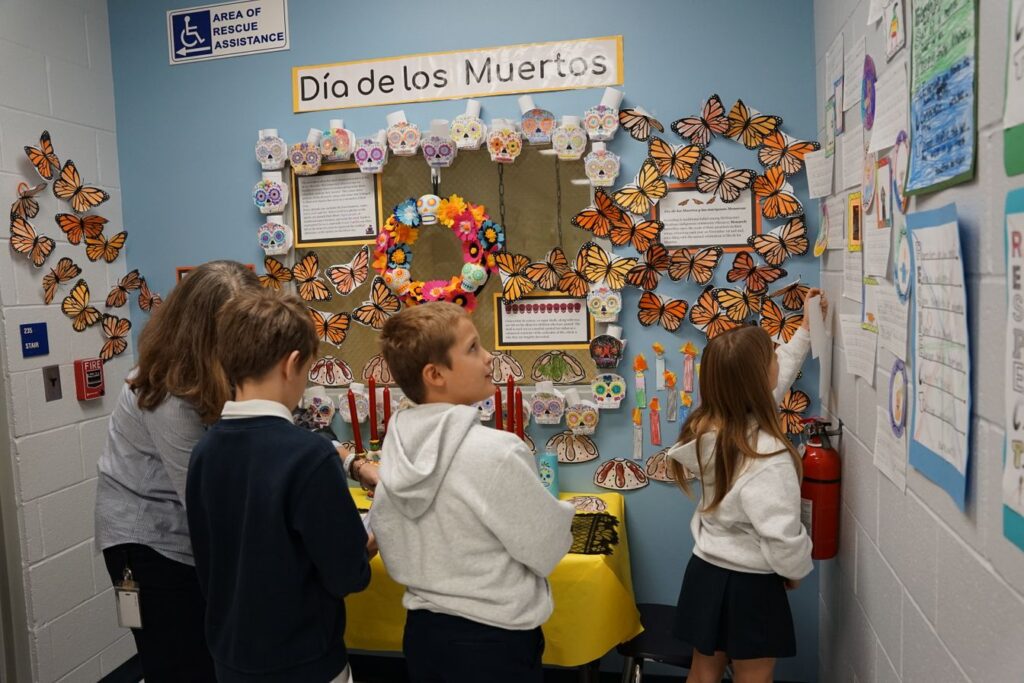When considering academic subjects, many first think of science, math, history, and literature. However, world language studies are another fundamental pillar of a young learner’s academic and intellectual foundation.
At St. Timothy’s School, we incorporate world language studies in our curriculum to encourage students to broaden their worldviews early. Read below to learn more about the benefits of learning another language at an early age.
Better Problem Solving Skills
Research shows that learning a foreign language can strengthen students’ problem-solving, critical-thinking, and listening skills. Students develop more well-rounded cognitive abilities by utilizing brain muscles underused in other academic areas. With stronger cognition, creativity, and overall mental flexibility, students excel not only in their second language but also in other subjects.
Higher Grades and Test Scores
From better report cards to higher standardized test scores, studies have shown that learning a second language can improve a student’s overall academic performance. Through assignments like vocabulary exercises and language structure practice, foreign language increases a student’s overall memory capacity and concentration—which can then be applied in other subjects or on standardized tests.
Richer Vocabulary
When speaking or writing in their first language, students sometimes overlook grammatical rules or extensive vocabulary. However, students can develop a newfound understanding of their native language when learning a second language, as it’s easy to make connections between the two. World language studies reinforce concepts and terms students have learned about their native language, resulting in a thorough understanding of syntax, spelling, grammar, and more.
Greater Worldview
World language studies directly correlate to a child’s greater outlook on the world. In addition to learning a language’s grammatical principles and vocabulary, students also deep dive into an entirely new culture. By broadening their cultural perspective, students often become more curious and adventurous learners, sparking their interest in learning about other cultures for years to come.
More Career Opportunities
Getting a headstart on a world language can set students up for long-term success. From college admissions to job searches, knowing a second language is a huge advantage for ambitious learners throughout their lives—especially if they go beyond the basics and become fluent. Bilingual candidates have a competitive advantage in the application process, as broader communication skills are valued across all industries.
Confidence Boosts
Getting the hang of a new concept or subject is always a confidence booster for young learners. And when learning something as complex as a foreign language, the smallest wins make the most significant impact. Studying a second language can increase students’ self-esteem and motivate them to take on other challenging courses. As learners grasp their foreign language, they become more confident in their cognitive abilities and overall academic performance.
St. Timothy’s School encourages students to expand their horizons by studying world languages. Through our challenging world language studies, students grow academically and intellectually in ways that can’t be replicated in other subjects. From stronger problem-solving to better confidence, foreign languages foster unique learning opportunities with lasting impacts. To learn more about how St. Timothy’s incorporates world languages into our curriculum, visit our grade-specific learning pages.


